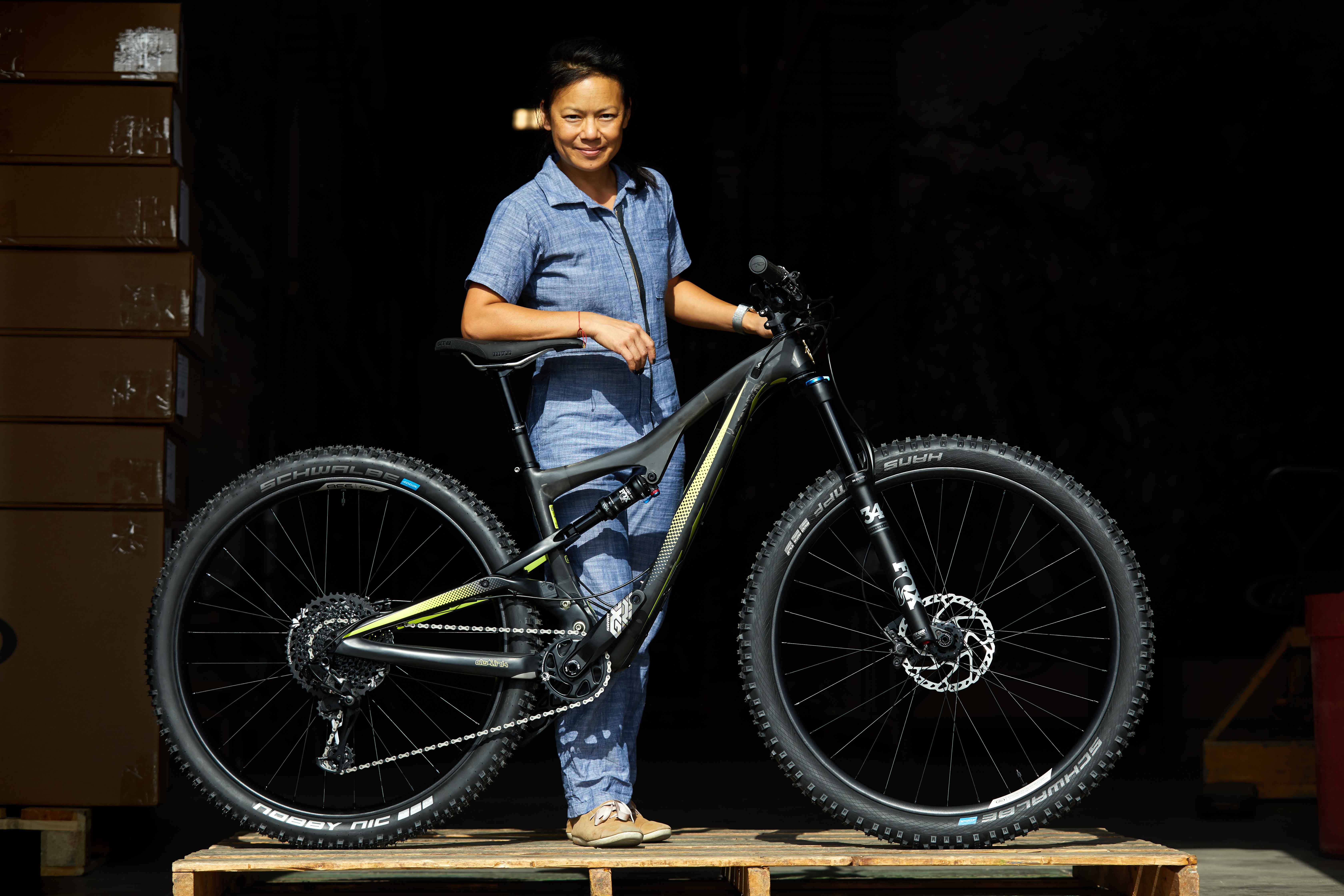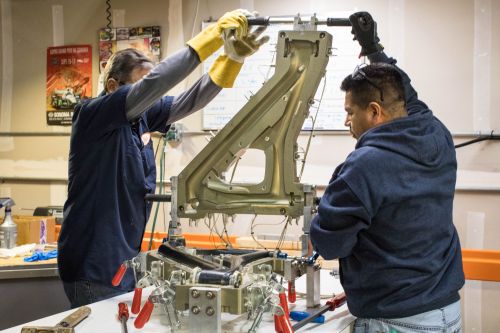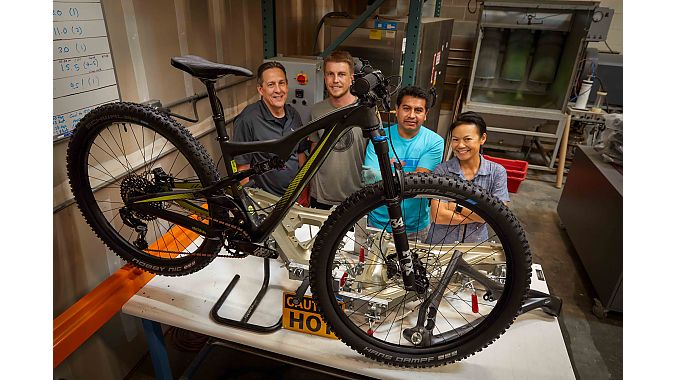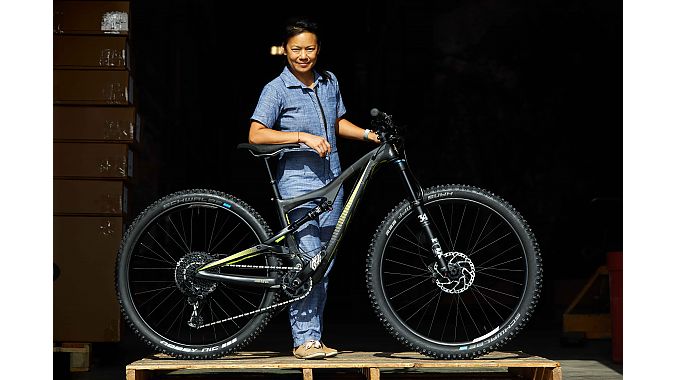SANTA CRUZ, Calif. (BRAIN) — Ibis Cycles announced Wednesday that it is manufacturing size small Ripley LS carbon fiber mountain bike frames at its facility in Santa Cruz. The company has previously not offered the Ripley LS, which is a 29er full suspension bike, in a size small (it predecessor, the Ripley, did come in a small).
The company has not manufactured a frame in-house since about 2000, when it closed its factory in Santa Rosa, California.
About four years ago the company began building a carbon fiber manufacturing lab at its headquarters. As it has experimented with production, Ibis developed a process that requires about 40 percent less labor time and also uses less energy. The energy savings is largely due to Ibis' new lightweight aluminum molds, which replace the large steel presses and molds used in Asian carbon fiber frame factories.
Ibis said the resulting frame is 200 grams lighter than the Ripley small made overseas. About 70 grams of the weight savings is because the U.S.-made frame is unpainted.

Conveniently, the small Ripley fits Ibis designer and co-owner Roxy Lo. Besides the weight reduction, the new small frame was updated with a longer reach, steeper 75 degree seat tube angle, and clearance for 2.6-inch tires. Currently the company is manufacturing only the front triangle in the U.S. but plans to begin production of the carbon rear swingarm here soon. Like all Ibis frames for the U.S. market, the frames are assembled and packaged in-house.
Ibis' Scot Nicol told BRAIN the U.S.-made frame has the same retail price as the Asia-made sizes, but the company makes less money on its sales. "We've got it down to where there is a small amount of profitability or we break even on them," he said. Demand for size small 29ers is low and Nicol said Ibis will be making "several a week" to start.
Nicol said the production is largely an R&D project but Ibis plans to eventually make a full model run domestically. He declined to estimate when that would happen.
"As we reduce labor time here and as Asian wages go up, the delta between the two becomes less and less and manufacturing here starts to look more viable ... any time we can be more in control of our destiny, that's good for the company."
Ibis added staff devoted to carbon manufacturing about four years ago when the project began. Several of the new staffers are veterans of Kestrel, including Preston Sandusky, a co-founder of Kestrel who is now a production engineer at Ibis. "We have a nice little Kestrel brain trust," Nicol said. He said the company has not had to add new employees as actual production of the frame has got underway.
More on Ibis' U.S. manufacturing techniques on the Ibis website.






